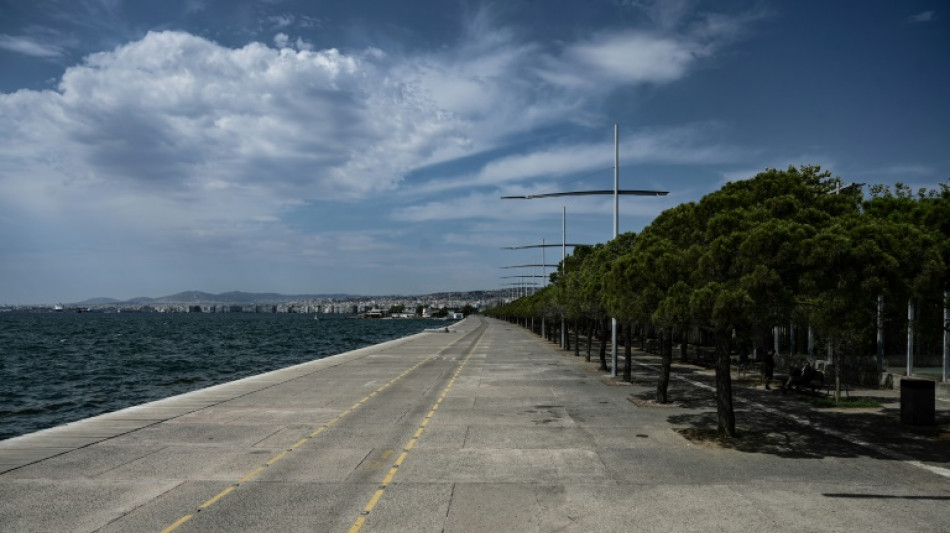
BCE
-0.1200

Greek authorities ordered the partial closure of the ancient Acropolis temple for the second time in less than two weeks on Tuesday as blistering heat hit much of the eastern Mediterranean.
Temperatures were predicted to rise above 40 degrees Celsius (104 Fahrenheit) along the Turkish coast and in North Macedonia, where authorities urged people to stay at home as much as possible.
Greek weather experts said the heatwave would intensify until Sunday with temperatures surpassing 43C in Greece.
The thermometer hit 42.9C in the town of Sparta on Tuesday, according to the national observatory.
The Acropolis, one of the world's most popular museums with up to 23,000 visitors a day, would close on Tuesday and Wednesday during the hottest hours between midday and 5.00 pm (1400 GMT), the culture ministry said.
The decision was taken "for the safety of employees and visitors", the ministry said.
The Acropolis, sitting on a rocky hill overlooking Athens and which has a priceless collection of artifacts, was also partly closed on July 8-9 and has seen similar measures in the past two summers because of the heat.
- Too hot -
About a dozen mostly foreign tourists were gathered around the closed gates of the landmark as the heat intensified.
"It's too hot to be in Athens. The heat is slowing me down very much. And it's just very uncomfortable," said Chris, a 48-year-old American tourist, who explained that he had missed a flight to one of the Greek islands and would be stuck in the Greek capital until Thursday.
"I don't want to be in Athens," he declared.
Christina, a 49-year-old Italian visiting Athens with her mother and 10-year-old daughter, said her family was used to the searing heat because of conditions in her home country.
"Now I think we will have lunch. We will find a restaurant with AC," she said.
The Athens region could see temperatures reach 43C on Saturday, according to the weather site meteo.gr, which warned of "the risk of negative effects on health".
The labour ministry suspended outdoor work between midday and 5.00 pm in several regions as part of emergency measures to help workers cope with the heatwave. Some cities opened up air-conditioned public rooms.
With scientists warning that rising temperatures would cause more frequent and more extreme heatwaves and other freak weather conditions, Greece and other Mediterranean countries have been through a growing number of ultra-hot summers.
Authorities said that 2024 was the hottest summer ever recorded in Greece.
In neighbouring Turkey, temperatures that are above the seasonal average are expected to last until the end of July, according to the MGM national meteorological service.
Temperatures have been about 35C in Istanbul and Ankara since the weekend and in the western resort of Izmir was predicted to reach 42C on Wednesday, according to the MGM.
In North Macedonia, which has been battling a number of forest fires, authorities said temperatures would only reach a peak at the end of the week.
High temperatures have also been predicted for Albania, where a number of forest fires raged on Monday, and in northern Bosnia as much of the Balkans sweltered in intense heat.
J.Marek--TPP